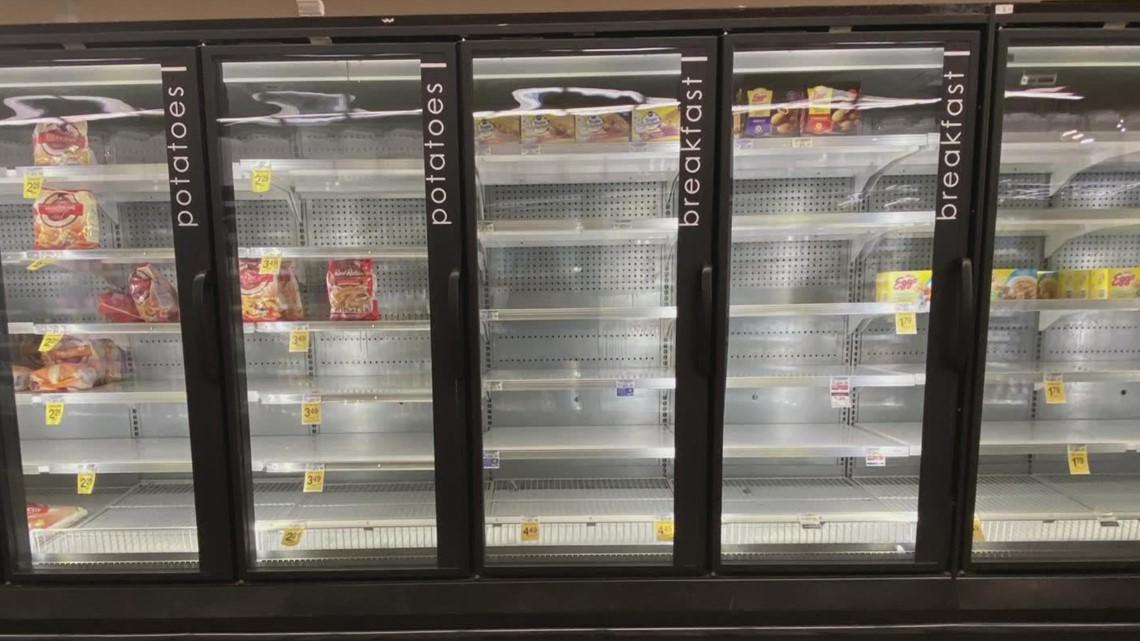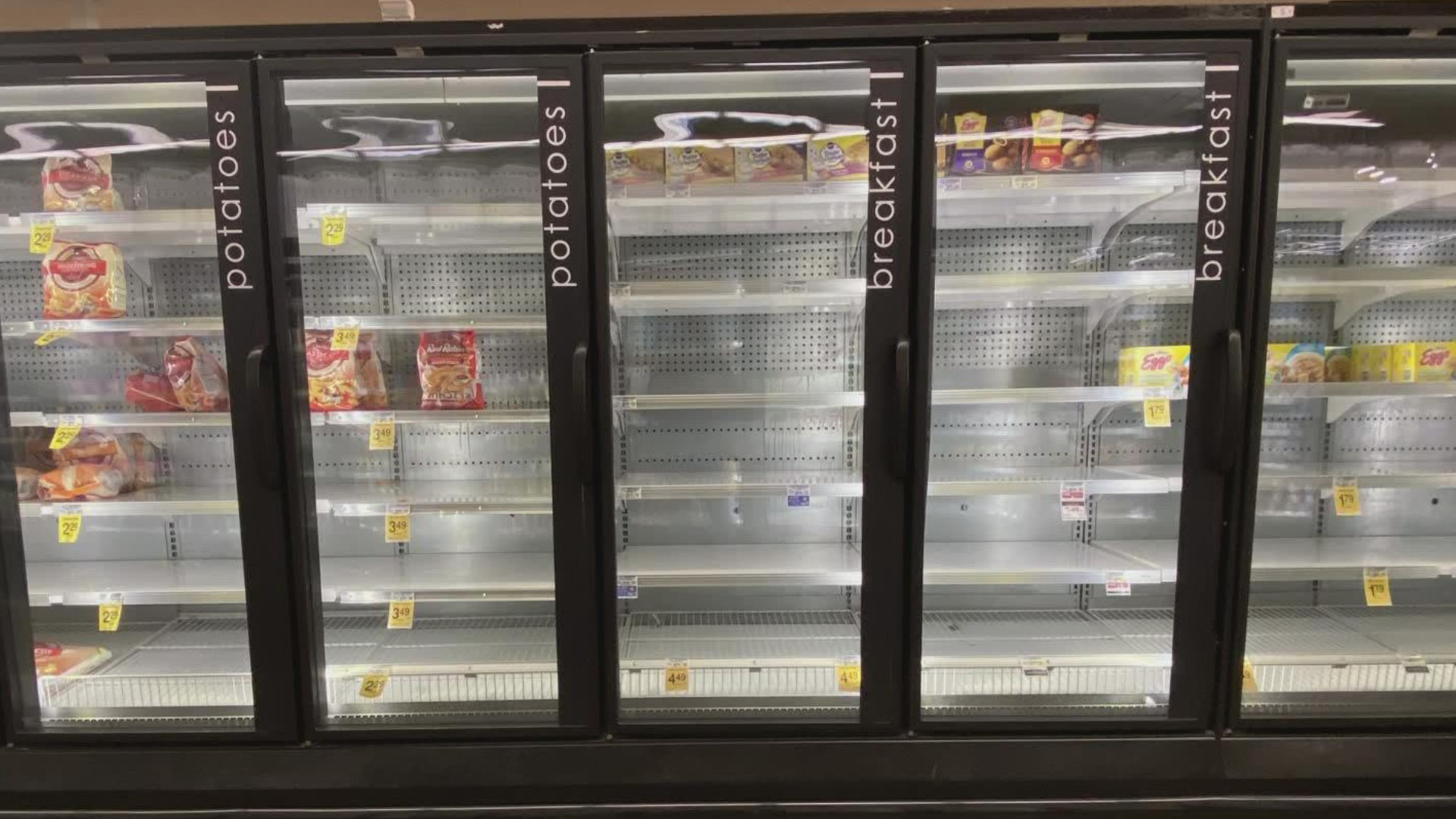DENVER — King Soopers and the labor union that represents employees were once again in negotiations on Monday.
Last week, thousands of King Soopers workers walked off the job and went on strike over what the union called unfair labor practices.
Produce aisles inside a Denver-area King Soopers on Monday didn't look as abundant as their competitors', but stockers were seen refilling product. The deli was closed, and so was the bakery, and much of the meat department was bare.
Across the street at Safeway, the produce department seemed to thrive, but there was hardly any milk available, and certain frozen products were scarce. King Soopers had a decent supply of both of those items.
Jack Buffington, Program Director of Supply Chain Management at the University of Denver, said while a strike may have an impact on product availability, so does the massive crisis the supply chain is in right now.
9NEWS spoke with Buffington about the impact supply chain issues have on grocery stores.
(Editor’s note: This interview has been edited for context and clarity.)
9NEWS: How is the supply chain impacting product supply at grocery stores?
Buffington: Supermarkets are known for their efficiency and predictability, and that is related to getting the supply exactly when they need it, especially for things like fresh produce. So the supply chain hasn’t been very predictable given what is going on with COVID variants and labor shortages and everything like that, so they’re facing these challenges.
I wouldn’t call it a major problem, but there are some products that are not in certain supermarkets that are in other ones. You may not have 35 different choices for salad dressing. You may only have 25.
I think where it becomes a problem is that it’s different from what consumers are used to where everything was always there exactly when they needed it, and now they’re not experiencing that.
How long do we think we may see these issues?
Buffington: If we get to a place of predictability as it was before 2020, things will return to the way they used to be. But will we ever get to that place again with COVID? Or will things always be less predictable? Will we ever get to the place we used to be when it came to labor? Or will there eventually not be the same labor shortages that there are today?
So it is really an "if" of efficiency and predictability that we had before 2020.


What are some grocery products that are impacted by the supply chain issues?
Buffington: I think it’s typical for perishable products like vegetables and meat because they only have a certain shelf life. They also focus on a growing season. The supply chain of getting lettuce from California to Colorado is much different than getting canned foods from somewhere in the Midwest, because of shelf life.
Getting bananas from Central America to the United States is very challenging in today’s supply chain world.
Most people don’t want to talk about supply chain because it’s just something that is there, and I don’t think people appreciated how efficient it was and how predictable it was.
Supply chain is all about expectations, and we’ve established these super high expectations for consumers that now is the standard. I think what you’ll see over the next couple of years is that standard will change, and we’ll still get everything we need, but the expectations won’t be as high as they used to be.
How does supply chain impact the labor market?
Buffington: These two go hand in hand, where if there’s not available labor it impacts supply. I think people think of supply chain only as a product standpoint, but the labor aspect is critical, and they play off each other. When the labor market is not very stable, it impacts supply. When supply is not very stable, it impacts labor. Right now, they’re both playing on each other, which is adding to the volatility.
SUGGESTED VIDEOS: Latest from 9NEWS

